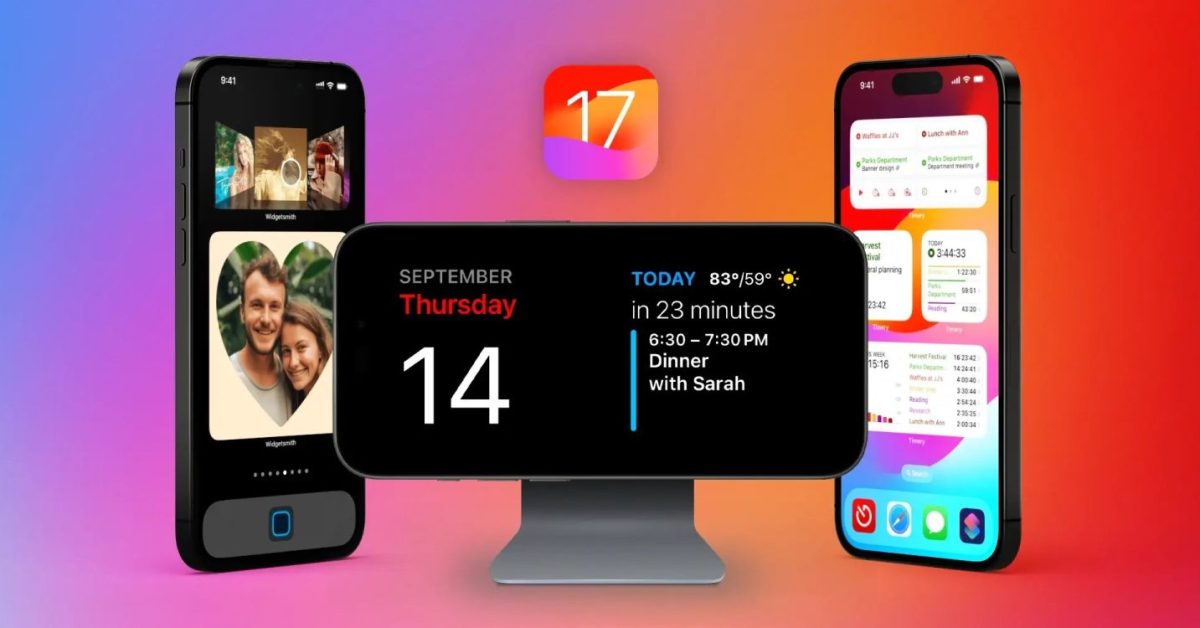Maybe if android 14 was guaranteed to have 70% adoption in one week developers would actually care. There’s no point developing features for 5% of users
Google never should have opened it up for hardware manufacturers. They should have just made the OS and licensed it out like windows. Then hardware manufacturers wouldn’t be able to release crappy forks that never get updated.
I disagree. If google hadn’t opened up, manufacturers wouldn’t have bothered. We also have great UIs like oneui with useful quality of life features not found in stock android. Not to mention a longer update cycle than even Google the developer of android.
So, it would have failed… haha
I disagree. For me that is the beauty of android.
As long as you’re happy, I’m happy.
They didn’t really have a choice. They were building on open-source software and Linux and Arm are somewhat bad at abstracting the hardware. So this means that the manufacturers must homebrew their own distro for their hardware, instead of just publishing drivers like windows hardware does.
They’ve been working on fixing this, but fundamentally they built their castle on sand. And if they hadn’t, they probably never would’ve gotten anywhere at all and we’d all be on Blackberry or WebOS or WinPhone or whatever.
You guys really just said that Linux and open source licenses are “a castle on sand” and they should “have done it like Windows”?
If you start running before anybody notice you may be able to make it. Go. Just. Go.
But no, seriously, that’s why I prefer Android. I have versions of it customized to handheld consoles, single board computers and a bunch of other stuff. I don’t want to be out there buying licenses for my platforms from Google.
Samsung is the biggest phone manufacturer in the world, Sony is a massive corporation.
If people want to sell phones the least they can do is have the software staff to back it up by doing maintenance. If I wanted an iPhone I’d buy an iPhone.
Look I love open-source but the whole lack of a separate binary driver layer is dumb and is why Windows can support a machine for over a decade while Android has terrible device-specific support windows and you don’t just get your new OS version from Android Update, you have to get it from your vendor.
Imagine if you owned a Dell and couldn’t run Windows Update, but had to use Dell Update instead?
That’s kind of a moot point seeing how it will be adopted by 100% of phones at one point (except for phones which are out of support, but those won’t get used at all after a certain point)
Is there not a thing where Spotify user still funny have an icon that changed with the wallpaper you use and people where angry?
The update philosophies on Android and iOS are vastly different, as is mentioned in the article.
iOS bundles a vast amount of things in their updates, such as core app updates, platform capability updates and developer API updates.
Android uses the OS update to bring new platform capabilities, mostly, and not even entirely through the mechanism, with lots of things now starting to be delivered unbundled from OS version. Core apps are delivered entirely separately from the OS version. Developer API updates often are backwards compatible using the AppCompat library, meaning that older OS versions sometimes get to benefit from the updates as well.
These differences have led to some significant differences in OS version support - a common OS version support policy for iOS app developers is to support the two most recent OS versions, while android support often is afforded to versions as far back as 5.0.
This in turn leads to an interesting effect, where the useful life of an Android device can actually be longer than that of an iOS device, despite the latter having access to OS updates for a longer time. This being because of the fact that the iOS device essentially becomes unusable once it’s no longer supported - you literally can’t install apps from the app store anymore, because they have long since dropped support for your OS. Android in the meantime keeps on going, because of the different philosophy of backwards compatibility among Android developers.
All of that being said, I do wish that Android developers were a bit better on things like UI consistency and supporting the latest OS features. I don’t know if I’d trade it for what iOS has, though.
This in turn leads to an interesting effect, where the useful life of an Android device can actually be longer than that of an iOS device, despite the latter having access to OS updates for a longer time.
This is so true.
I have a first-Gen iPad Air that runs fine, but is fast becoming useless, despite having received an OS update months ago.
While an old Galaxy S4 I have around runs many apps that still function fine (especially since I can find old compatible versions on apk mirror).
Pretty frustrating, because the iPad Air performance is plenty for the things I want to use it for.
All the things they listed that Apple added is already possible though
I think there also is something different in play. Most Apps come from the U.S. where most people in the tech sector use iPhones. So what OS are they most likley to support better?
Most people in the tech sector use iPhones
As someone in the “tech sector”, this is not my experience.
Yea, we’ll use them for work phones because Corp manages them anyway (so no advantage to using Android). But pretty much everyone uses Android for personal devices.
Management and above are iPhone.
Remember that all apps need to target the almost-latest target API at least. That means Android 13 for all new apps and app updates since Aug 31.
https://support.google.com/googleplay/android-developer/answer/11926878
I wish Apple hadn’t abandoned so many devices to rot on an old version for no good reason and then made their “One” service only work on the latest version as a blatant push to make people buy a new iDevice when the one they have would work just fine otherwise.
I’m not an iPhone user, but they have better long-term updates than the vast majority of other vendors. Five years of support, I don’t disagree with them wanting to push their newest device - they are a business and want to make money. Most features work except for things where there are hardware limitations.
I gave an example that has absolutely nothing to do with hardware limitations.
Your example didn’t really make any sense, as you can use Apple One on iOS 14 or newer. So the oldest supported iPhone would be the 6s from 2015, which at the point iOS 14 came out was already 5 years old.
Tell that to my iPod Touch 7 on iOS 15 that refuses to then.
deleted by creator
What happens when you try to use it? That’s very at odds with the documentation so I’d wonder if you’d need to log a support case with them or something.
It claims to be unable to connect. Support is full of people with the same complaint, Apple doesn’t care to fix it.
My old iPhone 7 (manufactured Sep 2016-2019) received a security update last month. Meanwhile, I bought a Samsung Android tablet new a few years ago only to find that the currently selling model wouldn’t upgrade to the current very of Android.
I think there also is something different in play. Most Apps come from the U.S. where most people in the tech sector use iPhones. So what OS are they most likley to support better?
Personally I’m giving all of the apps that haven’t implemented a themed icon a 1 star when Android 14 launches.
You’ve literally had a year and a half. It takes 60 seconds to do. Stop being incompetent.
[This comment has been deleted by an automated system]
It literally does take 60 seconds to do. It also is incompetence if you’re not up to date on the latest Android design guidelines.
A think that a lot of devs take “themed icons” as a gimmick feature on top and rather focus on app stability and other features, or they just don’t care because they don’t see it as a deal-breaker in any means.
Yep.
As a user, I agree with them.
A very small percentage of android users are at Android 14. Grow up
Android 13 has themed icons.
Maybe developers should grow up and learn to be competent?












